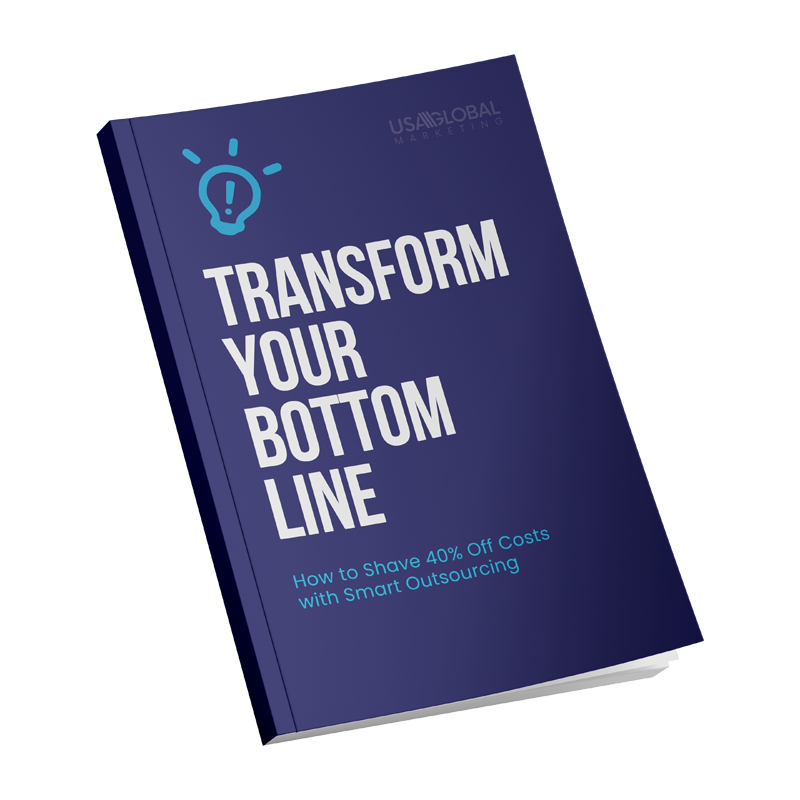In the business world, a critical distinction exists between working ‘on’ your business – focusing on strategic planning, and working ‘in’ it – managing day-to-day operations. The recognition and implementation of this concept, especially the importance of strategizing, often distinguishes business owners who realize substantial growth from those trapped in an endless cycle of routine tasks
Working ‘in’ your business involves
- handling the day-to-day tasks,
- putting out fires, and
- ensuring the smooth functioning of your operation.
It’s about rolling up your sleeves and getting your hands dirty in the nitty-gritty of your business – be it customer service, sales, or marketing. While vital for maintaining the status quo, this approach often leaves little room for strategic planning and long-term growth.
On the other hand, working ‘on’ your business is about stepping back from daily operations to focus on growth and strategy. It involves asking the big questions: Where do you want your business to be in five years? What are the long-term industry trends? How can you differentiate your business in the marketplace or pivot to meet changing demands? It’s about developing plans, creating systems, and strategizing for the future.
The Risks of Solely Implementing
Maintaining a focus solely on daily operations, while necessary for day-to-day continuity, can, unfortunately, lead to several risks and limitations, with business stagnation being the most prevalent.
A primary concern with this approach is that it fosters a reactive rather than proactive business culture. When wrapped up in managing the tasks at hand, there’s a high tendency to constantly react to emerging issues, leaving little room for proactivity. This approach might keep your business functioning in the short term, but it can also create a cycle where immediate needs overshadow strategic initiatives.
In addition, an intensive focus on daily operations often results in a narrowed perspective. Engrossed in the thick of things, stepping back and looking at the larger picture can become challenging. This can limit your vision to immediate tasks, potentially obscuring essential long-term growth strategies and hindering your business’s adaptability to shifting market dynamics, customer needs, and industry trends in an ever-evolving marketplace.
Numerous examples of businesses have hit a plateau or even declined because strategic planning was pushed to the back burner. A prime example is Kodak, which was so focused on its existing film camera operations that it overlooked the strategic importance of the emerging digital technology trend. Their excessive focus on daily operations, while neglecting the more significant industry trend, ultimately led to their downfall.
In contrast, businesses that make room to focus on strategic planning alongside daily operations are often more successful in driving sustainable growth. One way to create this balance is through strategic outsourcing, a topic we’ll delve into in the subsequent sections.

The Importance of Strategizing
Strategic planning is about setting goals, determining actions to achieve them, and mobilizing resources to execute them. This forward-looking approach helps businesses stay on track, make informed decisions, and achieve sustainable growth.
The role of strategic planning in business growth is paramount. It allows businesses to:
Identify Opportunities: Strategic planning helps businesses spot and capitalize on opportunities in the market, which can lead to growth.
Mitigate Risks: It enables businesses to foresee potential risks and prepare contingency plans, enhancing their resilience.
Increase Efficiency: Businesses can optimize their processes and save valuable resources by identifying the most effective way to reach their goals.
Drive Innovation: Strategic planning often leads to innovation, as businesses think outside the box to achieve long-term objectives.
Enhance Competitive Advantage: A well-crafted strategic plan can differentiate a business from its competitors, giving it a competitive edge.
Numerous businesses attribute their success and growth to strategic planning. A prime example is Netflix. Recognizing the early shift towards online streaming, Netflix transitioned from a DVD rental service to a streaming platform. They identified an opportunity, planned a strategy, and executed it effectively, becoming the industry leader.
Another successful example is Apple. The tech giant’s continued growth is heavily attributed to its strategic planning. Their ability to foresee tech trends, create innovative products, and effectively market them to their target audience is a testament to the power of strategic planning. Their strategic focus on simplicity, design, and customer experience has set them apart from competitors and fueled their sustained growth.
How Outsourcing Fits into Your Growth Strategy
Outsourcing, or contracting work out to third-party agencies, has emerged as a strategic tool for business growth. By outsourcing specific tasks or functions, business owners can free up their time and resources, allowing them to focus on strategic planning and core competencies.
Customer Support and Call Center Services
Customer support and call center services are vital for maintaining customer satisfaction, yet they can also be time-consuming and resource-intensive. Outsourcing these functions can free up significant time for strategic planning.
Successful businesses like Amazon have harnessed the power of outsourcing customer support, allowing them to focus on innovation and growth. By entrusting customer support to experts, they have maintained high levels of customer satisfaction while concurrently driving their expansion strategy.
Sales & Lead Generation
Outsourcing sales and lead generation to specialized agencies can provide a more focused approach to driving sales, enabling businesses to benefit from the agencies’ expertise and resources.
Digital Marketing
Effective online marketing is crucial for any business in today’s digital age. Outsourcing digital marketing to industry experts can allow enterprises to leverage the latest strategies and technologies without diverting their focus from core operations.
Collections & Retention
Outsourcing collections and retention can significantly improve customer retention and financial stability. Expert agencies can implement sophisticated strategies to retain customers and collect payments, boosting the business’s bottom line.
HR & Labor
Outsourcing HR and labor functions can streamline operations and increase efficiency, making businesses more agile and responsive.
Making the Shift: From Implementation to Strategic Outsourcing
Transitioning from an implementation-focused mindset to a strategy incorporating outsourcing is a significant strategic shift. It’s not a change that happens overnight but rather a process that occurs over time. This process involves
- carefully identifying functions that can be outsourced,
- finding the right outsourcing partners, and
- managing the transition effectively.
Below is a step-by-step guide that can aid businesses in making this crucial transition.
1. Evaluate Your Business Needs:
Start by identifying the areas within your business that require the most time and resources. Evaluate which functions are critical for your daily operations and which are strategic or growth-oriented. This analysis will clarify where your time is invested and where you want it.
2. Identify Functions for Outsourcing:
Based on your business evaluation, identify essential functions that can be completed in various ways. These could be areas where you need more expertise or resources, or they might be time-consuming tasks that are important but routine. Typical examples include customer service, digital marketing, HR and administrative tasks, collections, or lead generation.
3. Select the Right Outsourcing Partner:
Once you’ve identified the functions for outsourcing, the next step is to find the right partner. Look for outsourcing agencies that specialize in the areas you need. Evaluate their reputation, expertise, and cost-effectiveness. It’s also crucial to ensure they align with your company’s values and can adapt to your business culture.
4. Manage the Transition:
Transitioning functions from your in-house team to an outsourcing partner must be managed carefully to minimize disruption. Communicate the changes to all stakeholders, including your team, and ensure that everyone understands the reasons for the shift and the expected benefits. Start with one function, assess the results, and gradually expand to other areas.
5. Maintain Oversight:
While outsourcing aims to free up your time for strategic planning, maintaining some level of oversight is critical. Regularly review the performance of your outsourcing partners to ensure they are meeting your business objectives and delivering the expected results. Use Key Performance Indicators (KPIs) and Service Level Agreements (SLAs) to measure their performance objectively.
Achieving substantial business growth requires a strategic mindset and vision beyond day-to-day operations. While the daily business tasks are essential, they should be clear of the bigger picture of strategic planning and long-term goals. As business owners, navigating the delicate balance between working ‘in’ your business and working ‘on’ it is crucial.
Outsourcing is a potent tool in this endeavor, enabling businesses to delegate operational tasks to experienced external agencies. From customer support and call center services to sales and lead generation, digital marketing, collections and retention, and even HR and labor outsourcing, these functions can create space for business owners to focus on core competencies and strategic planning.
Successful companies across the globe, from startups to tech giants, have leveraged strategic outsourcing to drive growth. These companies have shown how stepping back from immediate operational tasks to strategize and plan can fuel business expansion.
In the rapidly evolving world of business, those who rise above the day-to-day and strategically plan for the future are the ones who will steer their companies toward sustainable growth and success. So, take the leap, start working ‘on’ your business, and unlock the vast potential that strategic planning and outsourcing can offer.


